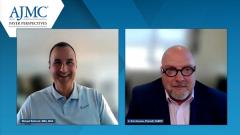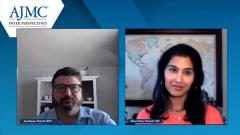
Importance of Early Effective Treatment of MDD
Key opinion leaders discuss the importance of early effective treatment for patients with MDD.
Episodes in this series

Michael Rothrock, MBA, MHA: I’d like to build on the last answer by Dr Cannon. He mentioned the need for additional behavioral therapists, and I don’t disagree. COVID-19 has accelerated the number of patients looking for help. Telehealth has definitely allowed a little more convenience and uptake in behavioral health introduction, and maybe we’re removing some of the stigma associated with depression by allowing that one-on-one conversation. But as he alluded to, getting that interaction early and finding the right drug should provide the best outcome for the patient. [Doctors] may be able to intervene to say: “This drug may not be working, we should have seen something. Let’s write you a new prescription. Let’s minimize the cycling of trial and error of different medications.”
Getting them early treatment and getting them accurately and effectively treated with cognitive behavioral therapy is going to promote the best outcome and the long-term goal of minimizing the relapses of MDD [major depressive disorder].
H. Eric Cannon, PharmD, FAMCP: When we talk about early treatment options and getting needed treatment quickly, we sometimes discount the impact of failing that first choice or second choice. Each time it fails, the impact on the patient compounds. The sooner we can get a patient on effective treatment where they start to notice some benefit early on, the more the overall outcome for the patient is greatly improved.
Transcript edited for clarity.
Newsletter
Stay ahead of policy, cost, and value—subscribe to AJMC for expert insights at the intersection of clinical care and health economics.











